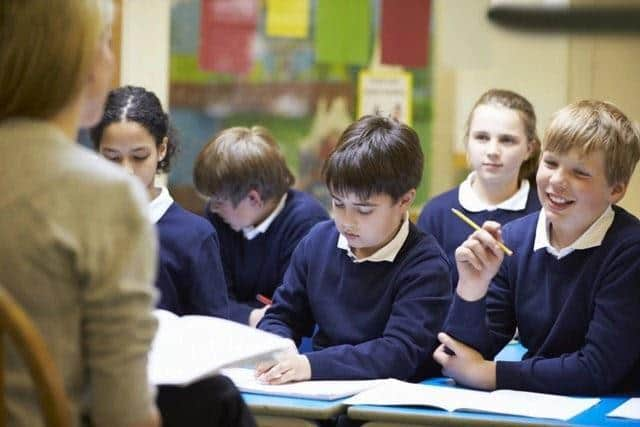Why Scotland's schools are key to creating a sustainable future


Swedish teenager Thunberg spearheaded the 'schools strike for climate' movement, but it's not a new phenomenon for school pupils to be a catalyst for change. The role of schools in sustainability has been a vital part of global citizenship education for many years. Such education is in keeping with the Sustainable Development Goal (SDG) Target 4.7 that aims to ensure all learners acquire the knowledge and skills for sustainability by 2030.
In Scotland there are five Development Education Centres (DECs) within the International Development Education Association of Scotland (IDEAS) that deliver training and support for teachers. IDEAS is the Scottish partner organisation for Bridge 47, an EU-funded project promoting global citizenship education.
The One World Centre in Dundee is a DEC that has been working with teachers across Dundee, Angus, Fife, Perth and Kinross since 1984.
Sally Romilly, Global Learning Advisor at the centre, says: “We work to raise awareness of the UN's sustainability goals. In Scotland the goals are aligned to policy through the National Performance Framework. The Scottish Government sees the goals as part of what's happening in society and that's a big plus.”
Carron Pour, of Bell Baxter High School, praised the centre for inspiring her to try new approaches in the classroom.
“The support from the One World Centre set me off on my global citizenship journey, and gave me confidence to try out new methodologies in school, which worked really well. The key is nurturing the young people to take forward their own ideas and actions.”
The promotion of Fair Trade is one aspect of sustainability and the One World Centre works with the Scottish Fair Trade Forum, the national membership network for Fair Trade in Scotland.
In terms of what can be achieved by schools, the forum’s Engagement and Communications Officer, Colleen Tait, gives the example of Fairlogie community café in Carnoustie. The café run by pupils of Carlogie Primary School has become a local hub for Fair Trade products and information.
“The pupils are exploring global issues on a local level, working on their literacy and numeracy skills in a real life setting whilst also developing social enterprise acumen.
“We need to continue fostering this combination of knowledge and skills if we are to have a serious shot at combatting the climate emergency, inequality, poverty and other injustices in Scotland and further afield.”
Learning about sustainability and global citizenship encourages pupils to reflect on social, economic and environmental issues, and the impact of their own actions from a global and local perspective. This means that global citizenship is not subject specific, but should instead span the entire curriculum and ethos of a school.
Tait says: “Many teachers do this fantastically already through the likes of the Fairtrade Schools award, which encourages everyone in the school to think about the impact of their actions on people and planet. The DECs and charities such as the Scottish Fair Trade Forum support schools in doing that.”
Both the One World Centre and the Scottish Fair Trade Forum have benefited from sub-granting from Bridge 47. The One World Centre has recently worked on a project called ‘Welcome to Our World’, using music as a context for exploring global citizenship issues.
Romilly explains: “The funding allowed us to work with a music specialist, who combines her passion for inclusion, celebrating diversity and valuing human rights with her musical expertise. The young people are really engaging with it.”
Such projects provide just a snapshot of what is happening in Scotland in this area. Romilly explains that DECs run whole programmes of professional learning opportunities, from year-long courses to shorter training opportunities exploring topics such as children’s rights. Courses introduce teachers to methodologies for discussing issues which are often seen as controversial, such as migration or Brexit.
“It's about understanding global citizenship education as an on-going approach to learning that is not about telling young people what to think, rather showing them how to think. In today’s world of short-term thinking and fake news, this is an important skill to have.”
Tait says that schools can play a key role in raising awareness of the Sustainable Development Goals. “We're living in a globalised world and the pandemic has highlighted that. Young people really understand this and can help to spread the message of the Goals.”
Scotland’s Sustainable Development Goals Network recently welcomed the publication of 'Scotland and the SDGs: a national review to drive action' by the Scottish Government. It tracked the country's progress in achieving the goals and the challenges that remain.
The report said: “Rather than simply meeting our obligations, we have the ambition in Scotland to turn the SDGs into a positive advantage socially, environmentally and economically.
“Much has been achieved to set in place the right conditions for moving forward on this vision, for example through action to support and invest in innovation and new thinking.”
For more information, please visit the Bridge 47 website.
This article was funded by the European Union